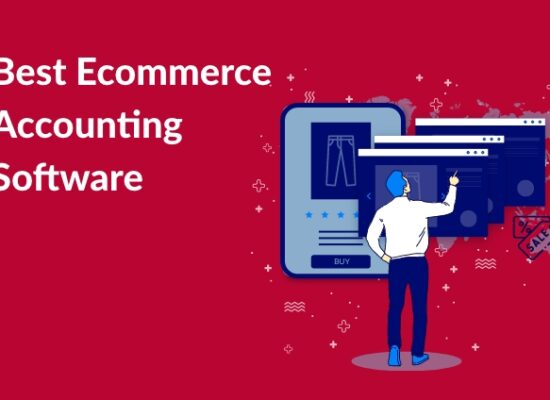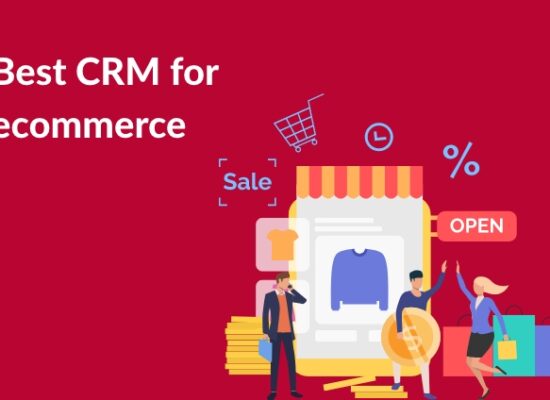- Building Your Winning Ecommerce Marketing Plan
- Ecommerce Digital Marketing
- Ecommerce Content Marketing
- Ecommerce SEO Strategy
- Ecommerce PPC Management
- Ecommerce Social Media Marketing
- Ecommerce Email Marketing
- Ecommerce SMS Marketing
- Ecommerce Product Photography
- Ecommerce marketing strategies are the gateway for your online business to climb the success ladder.
Having an online store is a great idea. With the advancement of technology, it is pretty easy to set up. But just having a great store isn’t enough. How will people know about you and the fantastic stuff you have in your store? That’s where e-commerce marketing strategies step in.
But how do these strategies help? Because of them, people will come to know you and pay attention to what you offer. They grab the attention and make sales happen. They also ensure that once your sale happens, these strategies work their magic to keep those customers returning for more.
In a nutshell, e-commerce marketing strategies are the driving force behind your success, helping you attract, convert, and retain customers in the competitive world of online shopping.
Below, we have discussed a few e-commerce marketing strategies to help your business grow.
Building Your Winning Ecommerce Marketing Plan

Let’s start by discussing the e-commerce marketing plan. An E-commerce marketing plan is like a roadmap for success, helping you navigate the wild world of online retail and reach your business goals.
It is the initial phase of developing a plan. It’s your goal first. You need to make a decision about the goals you have for your online store.
For instance, you may decide to enter new markets or try to boost sales by 50% in the upcoming year. Your objectives will direct all other actions that you take.
The next step is to determine who your target market is. Who are the perfect clients for you? What appeals to them? What is the internet hangout for them? To effectively personalize your marketing efforts to attract your target demographic, you must have a thorough understanding of them.
The budget is crucial. Your spending plan is crucial. Your strategies and level of aggressiveness in your marketing endeavors will be dictated by it.
Specific tactics are the nitty-gritty details of how you will achieve your goals within your budget. They could include running Facebook ads, launching a referral program, or partnering with influencers.
So, there you have it, the e-commerce marketing plan.
Read More : How to Increase Ecommerce Sales?
Ecommerce Digital Marketing

Next, to make your strategy successful, you need digital marketing. It is the heart and soul of your e-commerce store’s success. Imagine you’re standing in a crowded marketplace, trying to sell your excellent products. How will you grab people’s attention? You can’t keep shouting and pulling everyone, but you can always use the power of the internet to reach potential customers.
Digital marketing for e-commerce involves using online channels like websites, social media, and email—to spread the word about your products and persuade people to buy them.
Let me explain how it operates to you.
For your online store, you may already have a website, but it is not enough to simply have a website. You need visitors to it, and that’s what digital marketing is for. It is all about using the internet to connect with your audience, promote your products, and, ultimately, make more sales. It’s like having a virtual megaphone that helps you stand out in the crowded online marketplace.
Ecommerce Content Marketing

You saw, you read, and you liked it. Creating engaging and valuable material, such as blog entries, videos, or infographics, is the foundation of content marketing. In terms of strategic planning, it is the ideal step.
The best thing about content marketing is that it does not only help sell stuff; it’s just a part of it. It is also about building relationships with your audience. Many people may not trust some faceless corporation. Still, with content marketing, they’ll believe you’re an actual, relatable human who genuinely cares about helping them.
Content marketing is pretty awesome. It attracts people to your site, keeps them engaged, and ultimately turns them loyal customers.
Ecommerce SEO Strategy

SEO is about making your website more attractive to search engines so they’ll bump you up in the search results. You need to reach a larger audience to attract clients; SEO can help you with that. It helps your website show up higher in search engine results. Have you seen a word typed into Google and many websites pop up? Why does one particular website appear at the beginning and the rest below it? SEO does it.
First, it’s the keywords that make them stand out. These are the words or phrases people type into search engines when they’re looking for something.
Then, there’s page speed. You may often have seen that some websites load fast while others take forever. Search engines know this, too, so they help your website load quickly. That means ensuring your site is optimised for speed is super important for SEO.
Last but not least, we’ve got backlinks—the more reputable sites link back to yours, the better your SEO score will be.
Read More : 6 Best Ecommerce platform for SEO
Ecommerce PPC Management

PPC, or pay-per-click, is a type of advertising where you pay each time someone clicks on your ad.
Let’s talk about PPC management for your e-commerce business. E-commerce conversion optimization can be a powerful tool for driving immediate traffic to your e-commerce site. You put up an ad, people click on it, and they’re on your website. But here’s the catch: if you’re not careful, you could spend much money without seeing much in return.
That’s where PPC management comes in. It’s all about making strategic decisions to optimise your campaign for maximum results. This might involve choosing the right keywords, crafting compelling ad copy, and constantly monitoring and adjusting your bids to get the best possible return on investment.
So, while PPC can be a fantastic way to get people through the virtual door of your online store, it’s crucial to approach it with a well-thought-out strategy and careful management to ensure you’re getting the most bang for your buck.
Ecommerce Social Media Marketing

Social media is where it’s at these days. With billions of people scrolling through their feeds daily, it’s the perfect place to connect with your audience, showcase your products, and drive traffic to your site. Social media marketing is a good step for any e-commerce strategic plan.
Imagine you’ve just launched this super sleek line of eco-friendly phone cases.
You post somefantastic photos on Instagram, write a catchy caption and bam—people start liking, commenting, and tagging their friends. Suddenly, your brand is getting all this attention, and before you know it, your website is buzzing with visitors.
However, social media involves more than just sharing attractive photos. You may establish a more personal connection with your audience there as well. You can message them via direct messages, reply to their comments, and even address their inquiries. The best thing is that sharing is at the heart of social media.
Consequently, if your fans enjoy what they see, they will tell their friends, who will tell their friends, and so on. It goes viral word-of-mouth advertising! Social media advertising is really great.
Social media marketing is pretty awesome. It’s like having a 24/7 storefront where you can hang out, chat with your customers, and show off your products.
Read More : 8 Key Software Tools for Ecommerce Operations
Ecommerce Email Marketing

Don’t underestimate the power of email. Sending regular newsletters, promotions, and personalised offers can keep your customers engaged and returning for more.
Why should you bother with email when you’ve got social media, PPC, and all those other fancy marketing tactics? Because email is personal. When someone gives you their email address, they invite you into their inbox, which is a big deal.
And here’s the thing: people actually want to hear from you. Studies show that customers who receive email marketing messages spend more money and are more likely to make repeat purchases. Plus, email marketing for e-commerce is a great way to stay on top of mind.
The Best Email Marketing Tools : Mailchimp, Brevo, Campaigner
Ecommerce SMS Marketing

While people might ignore emails or scroll social media ads, they are far more likely to pay attention when a notification appears on their phones. Actually, research indicates that the open rates of texts are far higher than those of emails. Because SMS marketing is personal, it has great power. A text message feels like a direct connection between the sender and recipient. You can also reach them wherever they are because most people always have their phones with them.
Like any marketing tactic, SMS marketing is only effective when implemented properly. You don’t want to send your clients irrelevant stuff or harass them with texts nonstop. Rather, concentrate on providing value, including special offers, insider knowledge, or even a cordial reminder about their abandoned shopping cart.
With its personal touch and excellent open rates, SMS marketing has the potential to revolutionize your e-commerce firm.
Ecommerce Product Photography

A picture is worth a thousand words, especially when selling products online. Investing in high-quality product photography can make all the difference in how your products are perceived and, ultimately, how many sales you make.
When people can’t touch or try on your products in person, the next best thing is seeing them up close and personal in photos. Product photography can help with that. It all comes down to presenting your goods in the greatest possible way.
Purchasing superior product photography might help you stand out from the competitors. When you see professional-looking photos on a website, you can be confident that the product is legit and worth buying.
Research has indicated that when consumers view crisp, comprehensive photos, they are more likely to make a purchase. It’s similar to offering people an early look at what they will receive.
Ecommerce marketing strategies are the gateway for your online business to climb the success ladder.
Well, we’ve covered a lot of ground regarding e-commerce marketing strategies, haven’t we? But don’t worry if your head’s spinning a bit; it’s a lot to take in! The good news is, by now, you should have a clearer picture of how all these different pieces fit together to help you sell more online.
Here’s the thing to remember: e-commerce marketing isn’t just about pushing products onto people. It’s about building relationships, providing value, and, ultimately, sustainably growing your business. Think of it as making friends—you wouldn’t just walk up to someone and start shouting about your excellent new product, right?
You would converse with them, get to know them, and determine how you could support one another. Thus, as you start your ecommerce adventure, don’t be scared to experiment and observe what works for your target market.
Maybe you’ll find that Instagram is where your customers hang out or that sending out weekly newsletters drives more sales than you ever imagined. The key is to stay flexible and adapt to what works best for you and your business.
Above all, though, remember to have fun with it! E-commerce marketing can be a wild ride, but it’s also incredibly rewarding when you start seeing those sales roll in. So go ahead, experiment, get creative, and most importantly, enjoy the journey. Happy selling, my friend!
FAQ’s
E-commerce marketing strategy: what is it?
An online product promotion and sales strategy is an e-commerce marketing strategy. It uses email marketing, social media marketing, and search engine optimization to attract clients and increase revenue.
Why is marketing for ecommerce important?
Businesses may expand their customer base, boost brand awareness, and increase revenue through e-commerce marketing. Standing out in the congested internet industry is imperative.
Which essential elements make up a good e-commerce marketing plan?
Understanding your target audience, producing exciting content, search engine optimizing your website, and making efficient use of social media platforms are essential elements.
How do you measure the success of your e-commerce marketing efforts?
Metrics such as the flow of visitors to your website, the rate at which they turn into customers, the level of interaction with your brand, and the revenue you generate can serve as your compass in the e-commerce world.
Are there any typical e-commerce marketing blunders to stay away from?
Indeed, some common pitfalls in e-commerce marketing exist, such as falling behind on industry trends, dismissing customer feedback, and neglecting mobile optimization.



